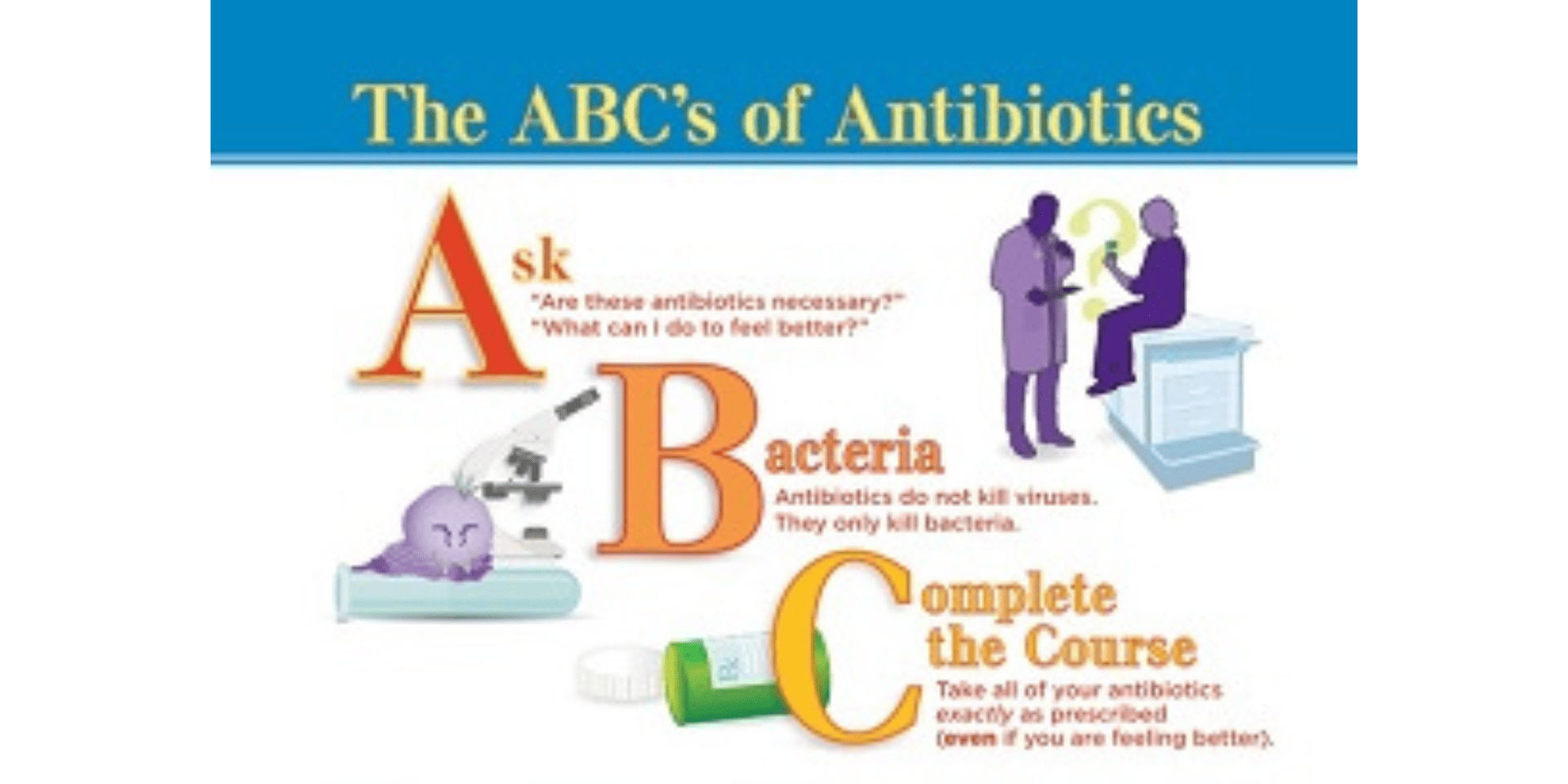
 Thank you to Mary Lou Manning, PhD, CRNP, CIC, President-elect, Association for Professionals in Infection Control and Epidemiology (APIC), for this guest post on the importance of antibiotic stewardship.
Thank you to Mary Lou Manning, PhD, CRNP, CIC, President-elect, Association for Professionals in Infection Control and Epidemiology (APIC), for this guest post on the importance of antibiotic stewardship.
Antibiotic resistance is a global threat to public health. The Centers for Disease Control and Prevention (CDC) reports that each year in the US, at least 2 million people become infected with bacteria that are resistant to antibiotics and 23,000 people die as a result. The March 2014 CDC Vital Signs report notes that poor antibiotic prescribing practices put patients at unnecessary risk for preventable allergic reactions, super-resistant infections, and Clostridium difficile (a.k.a. “deadly diarrhea”).
This year, APIC is marking International Infection Prevention Week (IIPW), October 19-25, by raising awareness and focusing attention on antibiotic resistance. The centerpiece of APIC’s outreach is a new “ABC’s of Antibiotics” infographic poster for patients and families that illustrates when antibiotics work and when they don’t. APIC is empowering consumers to Ask if antibiotics are appropriate; understand that antibiotics only kill Bacteria and won’t work against viruses; and that they must Complete the course of their antibiotics – even if they are feeling better before they have finished them.
APIC wants patients and families to ask five questions when their healthcare provider recommends antibiotics:
- “Do I really need an antibiotic?”
- “Can I get better without this antibiotic?”
- “What side effects or drug interactions can I expect?”
- “What side effects should I report to you?”
- “How do you know what kind of infection I have? I understand that antibiotics won’t work for viral infections.”
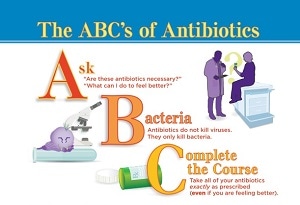 So how will you mark IIPW this year? We encourage you to share the “ABC’s of Antibiotics” infographic with your patients and place them in patient care areas. Use this year’s IIPW as a springboard to adopt at least one action that will improve antibiotic prescribing in your facility. Optimize your antibiotic prescribing practices and work with your facility to incorporate antibiotic stewardship actions in all practice settings.
So how will you mark IIPW this year? We encourage you to share the “ABC’s of Antibiotics” infographic with your patients and place them in patient care areas. Use this year’s IIPW as a springboard to adopt at least one action that will improve antibiotic prescribing in your facility. Optimize your antibiotic prescribing practices and work with your facility to incorporate antibiotic stewardship actions in all practice settings.
Working together – patients, family members, healthcare professionals, and prescribers – we can preserve the effectiveness of antibiotics. But we need to act now.
To join the conversation, follow us on Twitter (@nfidvaccines) or use the hashtag #IIPW from October 19-25, 2015, like us on Facebook, and join the NFID Linkedin Group.
Related Posts
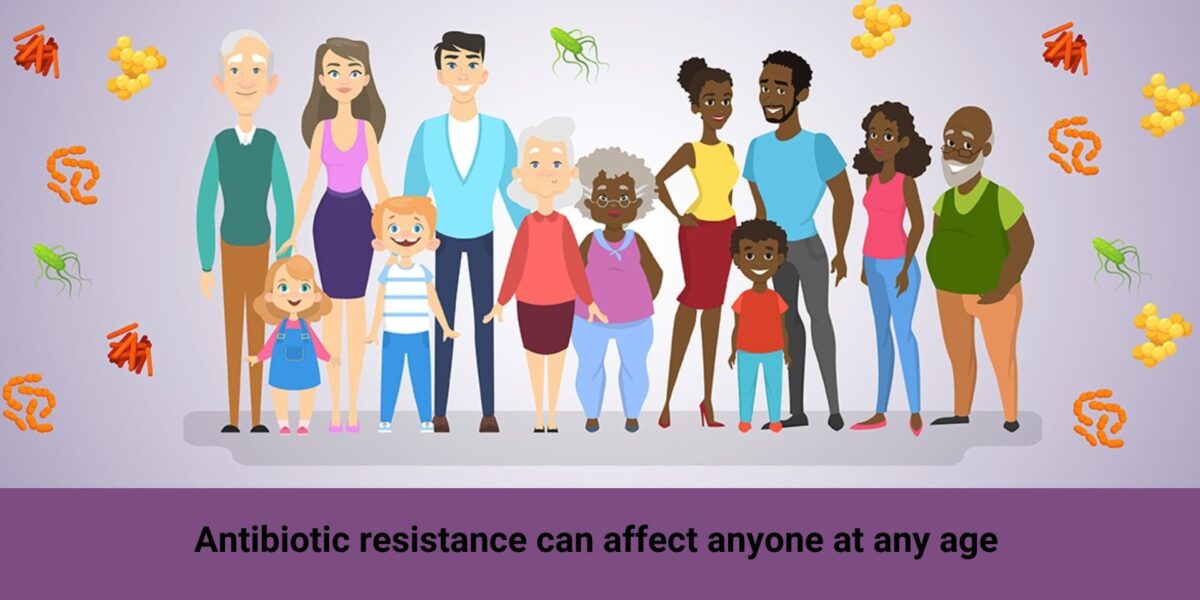
5 Things To Know about Antibiotic Resistance
There are steps everyone can take to help protect against drug-resistant infections
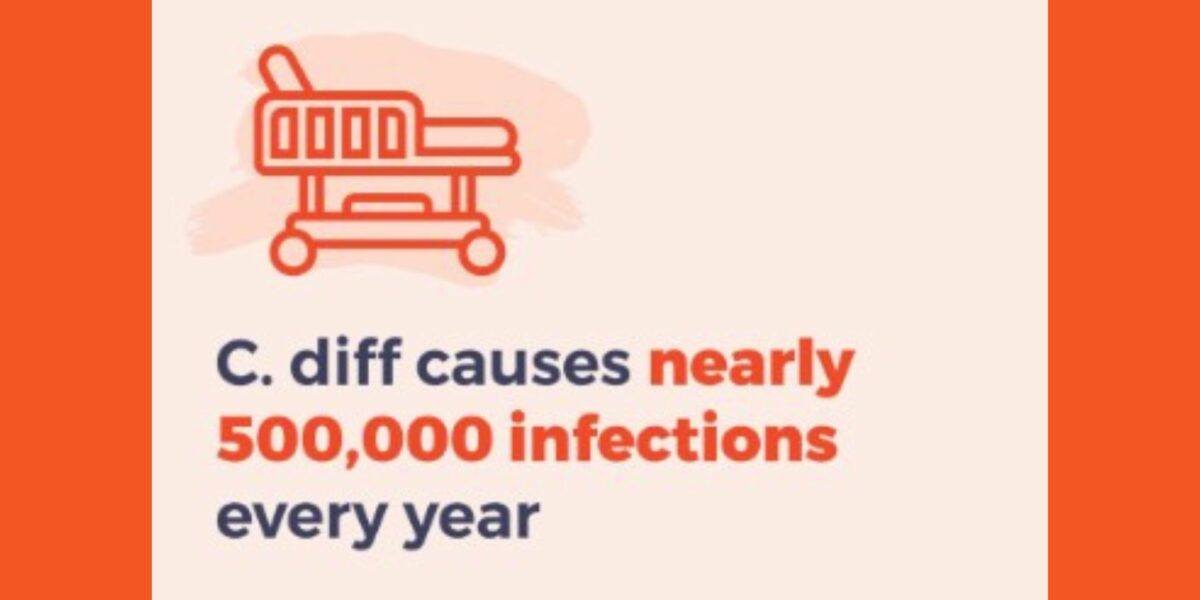
C. diff: An Urgent Public Health Threat
November is C. diff Awareness Month, an annual opportunity to raise awareness about this common but potentially deadly infection
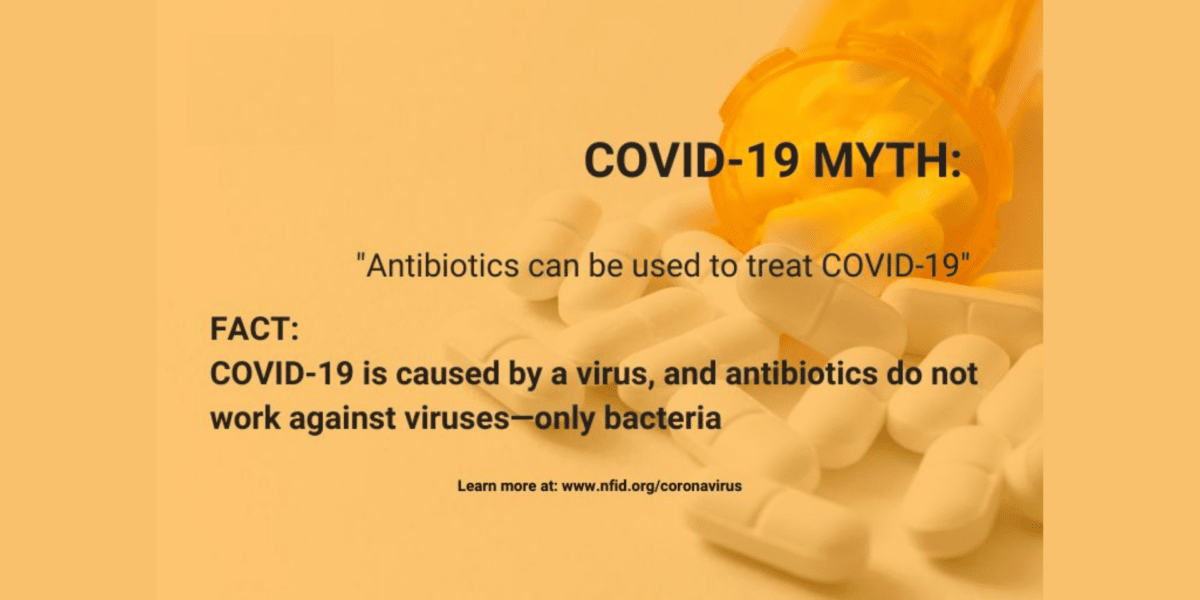
A Perfect Storm: Antibiotic Resistance and COVID-19
COVID-19 disease caused surges in hospitalization with a proportion of patients experiencing severe disease that led to prolonged hospitalization and the use of invasive medical devices. At the same time, the pandemic also diminished the ability of hospitals to perform optimal infection prevention and antibiotic stewardship activities as resources were diverted to COVID-19 response …
